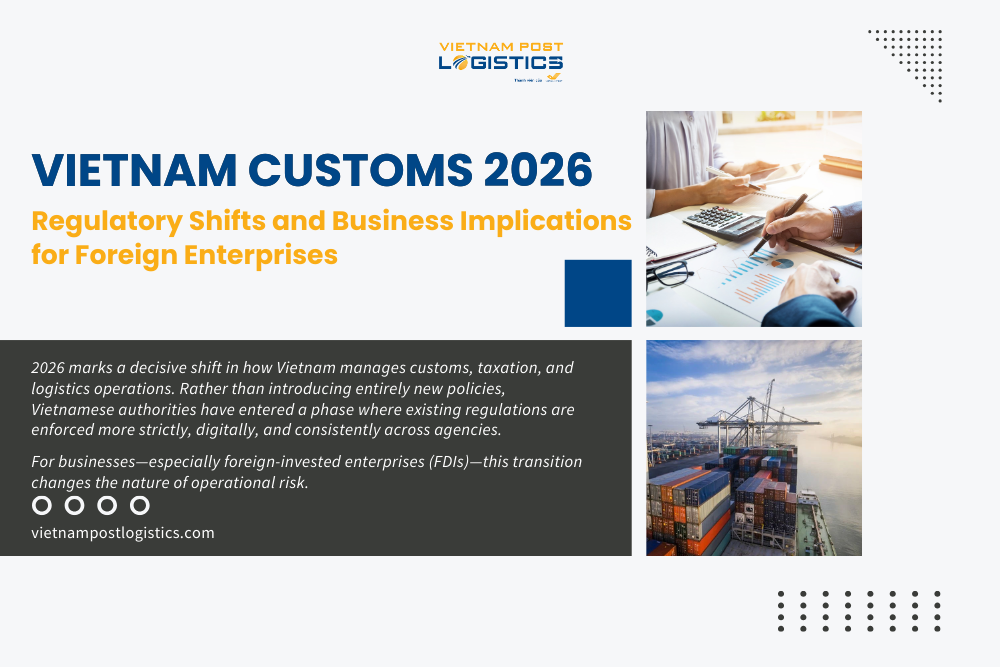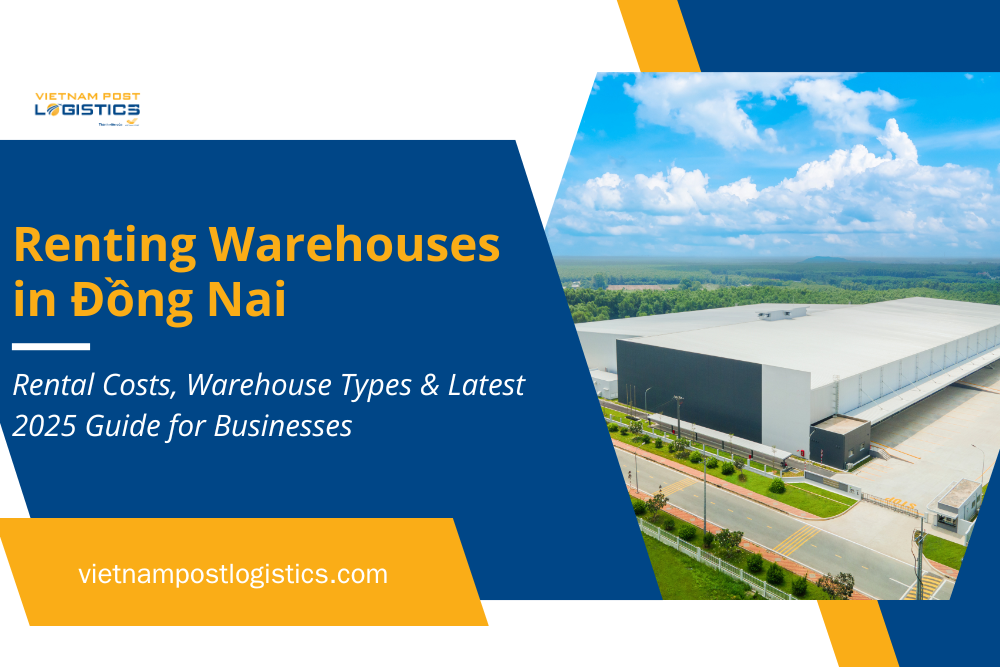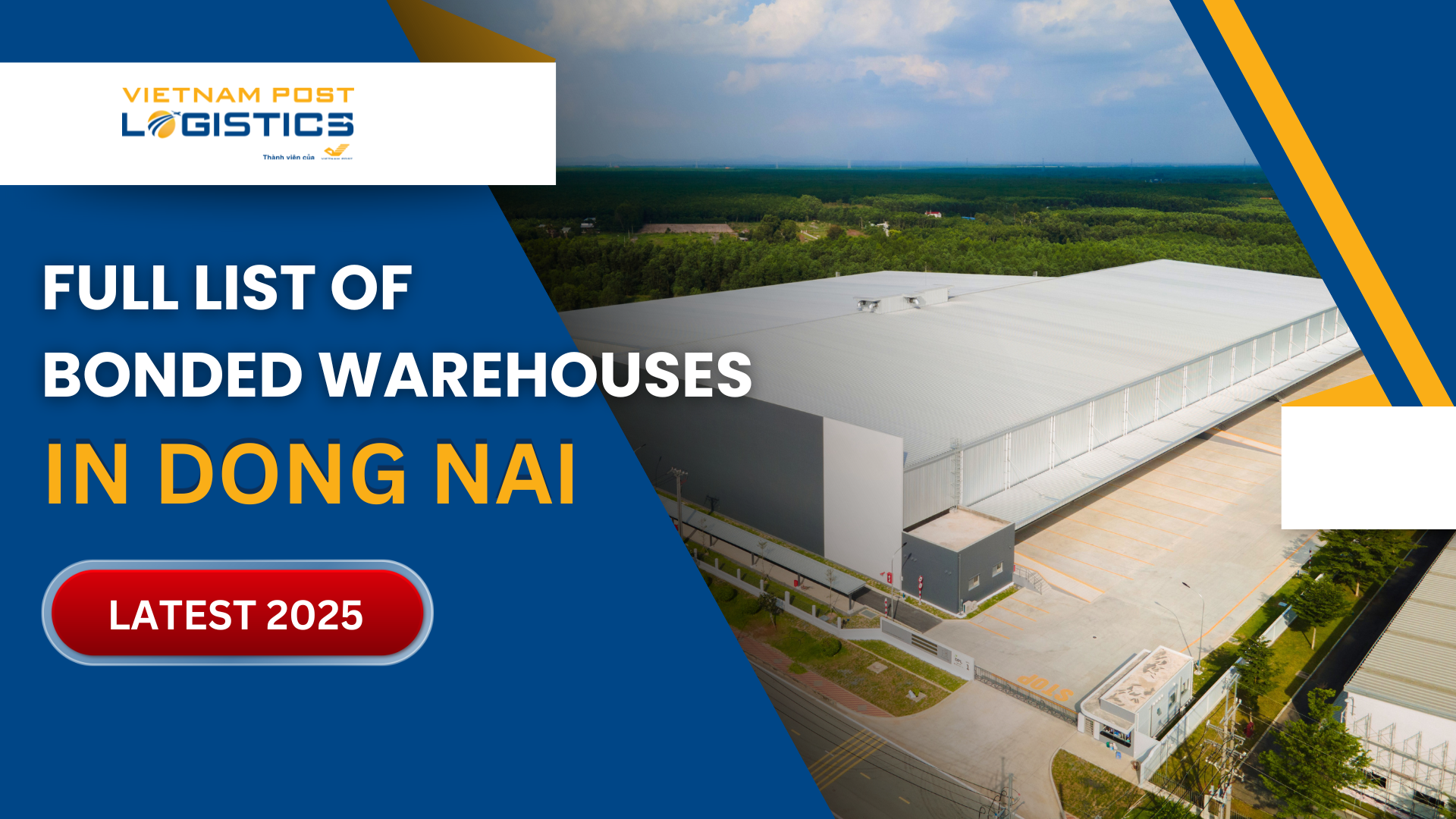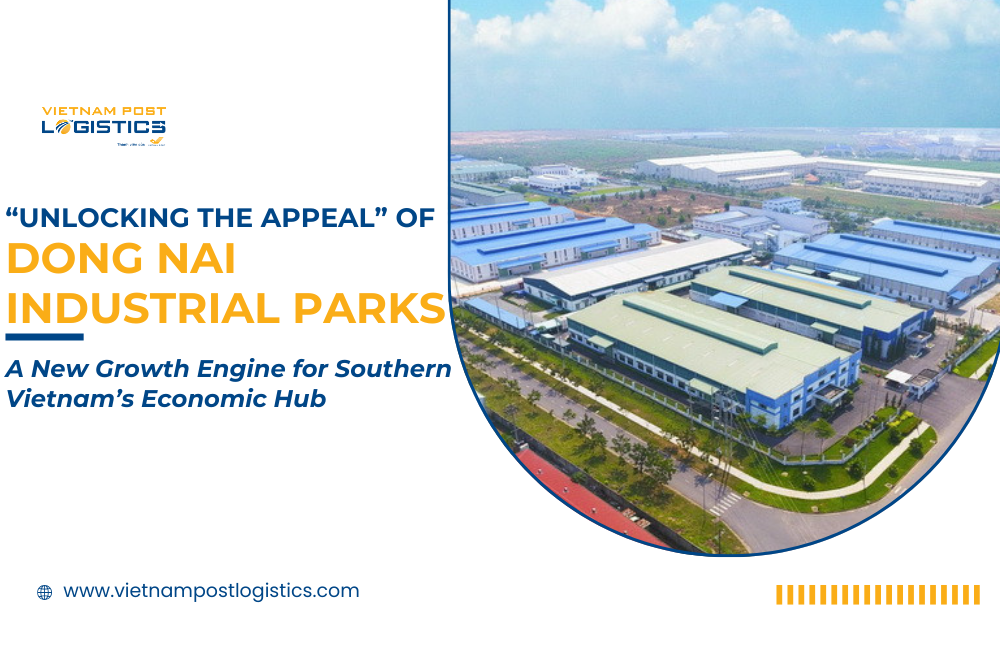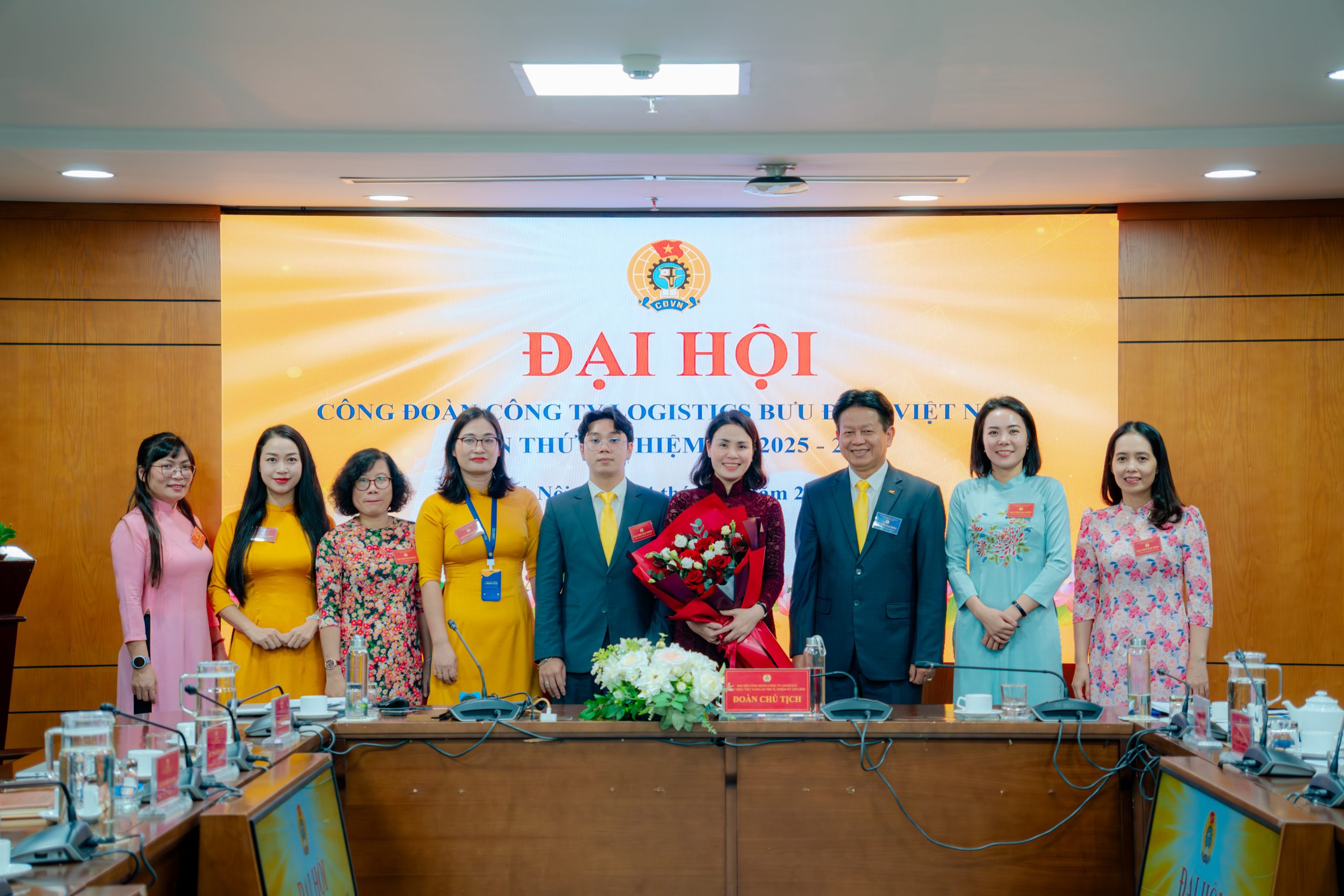
FMC License: Your Gateway to Seamless Shipping to the U.S
 Vietnam Post Logistics
Vietnam Post Logistics
 28 May, 2025
28 May, 2025
 5 phút đọc
5 phút đọc
In 2024, Vietnam’s exports to the United States reached nearly $119 billion, marking a 23,3 % increase from the previous year. This surge underscores the growing significance of the U.S market for Vietnamese exporters. However, entering this lucrative market requires adherence to stringent regulations, notably obtaining a license from the Federal Maritime Commission (FMC).
This license is not just a regulatory formality; it’s a critical credential that ensures legal compliance and enhances credibility in the U.S. logistics landscape.
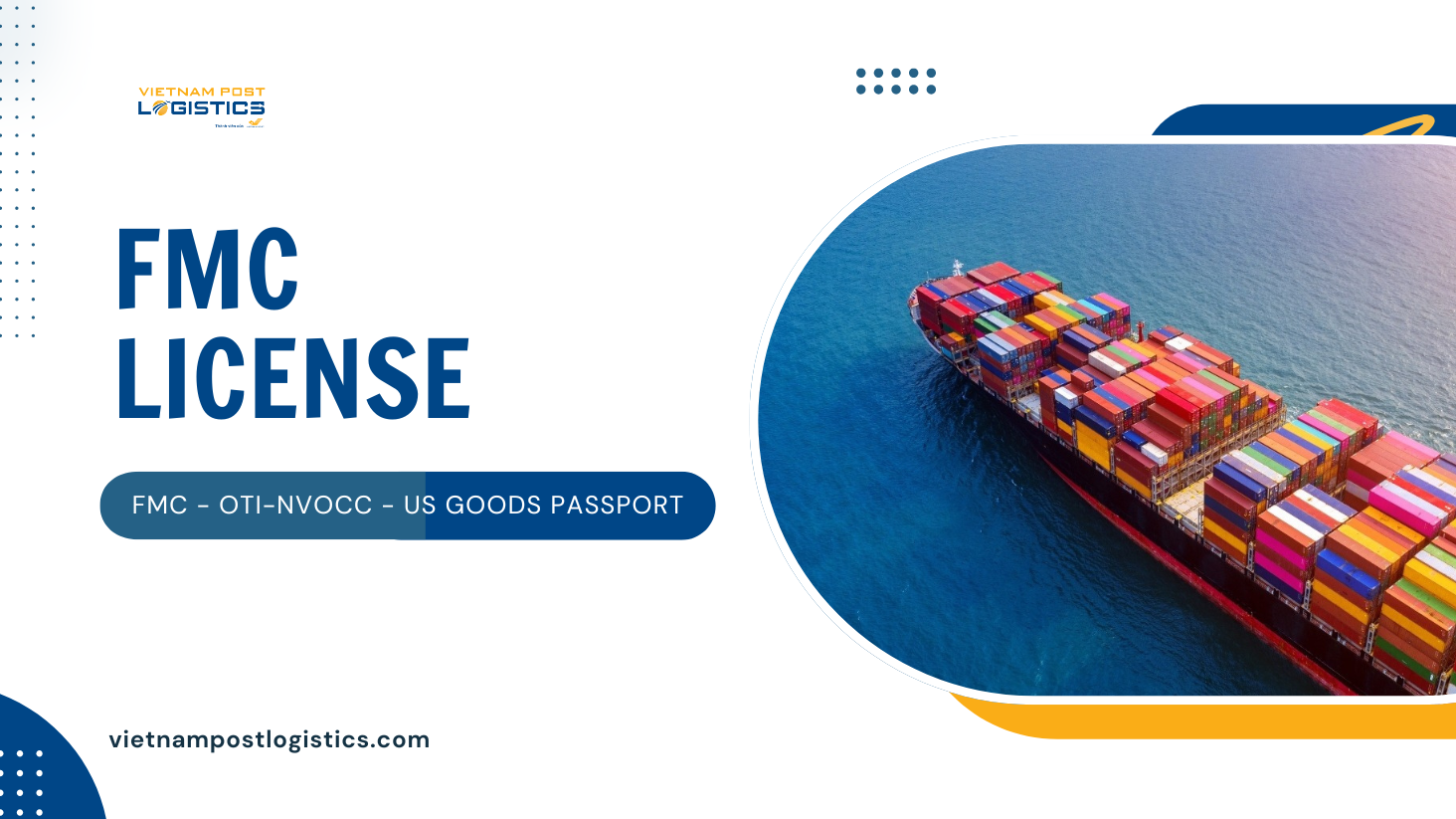
What is the FMC License?
Understanding the Federal Maritime Commission (FMC)
The Federal Maritime Commission (FMC) is an independent U.S. government agency responsible for regulating international ocean transportation for the benefit of exporters, importers, and consumers. Its primary role is to ensure a competitive and reliable international ocean transportation supply system that supports the U.S. economy and protects the public from unfair and deceptive practices.
The Significance of the FMC License
An FMC license is mandatory for businesses acting as Ocean Transportation Intermediaries (OTIs), which include:
- Non-Vessel Operating Common Carriers (NVOCCs): Companies that organize shipments for individuals or corporations to get goods from the manufacturer or producer to a market, customer, or final point of distribution.
- Ocean Freight Forwarders (OFFs): Entities that dispatch shipments from the U.S. via a common carrier and book or otherwise arrange space for those shipments on behalf of shippers.
Holding an FMC license signifies that a company complies with U.S. maritime laws, has the necessary financial responsibility, and adheres to industry best practices.
Types of FMC License
The FMC issues various licenses based on the nature and location of the business:
- U.S.-Based NVOCC License: For companies operating within the U.S. that do not own vessels but provide ocean transportation services.
- Foreign-Based NVOCC Registration: For non-U.S. companies providing similar services without a physical presence in the U.S.
- Ocean Freight Forwarder (OFF) License: For U.S.-based entities arranging cargo movement and related services.
- Combined NVOCC and OFF License: For companies performing both roles.
- OTI License: A comprehensive license covering all ocean transportation intermediary activities.
Each license type has specific requirements, including proof of financial responsibility and adherence to FMC regulations.
Requirement for Obtaining an FMC License
- To secure an FMC license, companies must fulfill several criteria:
- Financial Responsibility: Demonstrate financial stability through surety bonds—typically $75,000 for NVOCCs and $50,000 for OFFs.
- Qualifying Individual (QI): Appoint a QI with at least three years of experience in U.S. ocean transportation operations.
- Application Submission: Complete and submit the appropriate forms (e.g., Form FMC-18 for U.S.-based entities or Form FMC-65 for foreign-based NVOCCs).
- Tariff Publication: Maintain publicly accessible tariffs detailing rates, charges, and practices.
Compliance with these requirements ensures that the company operates within the legal framework established by the FMC.
Benefits of Holding an FMC license
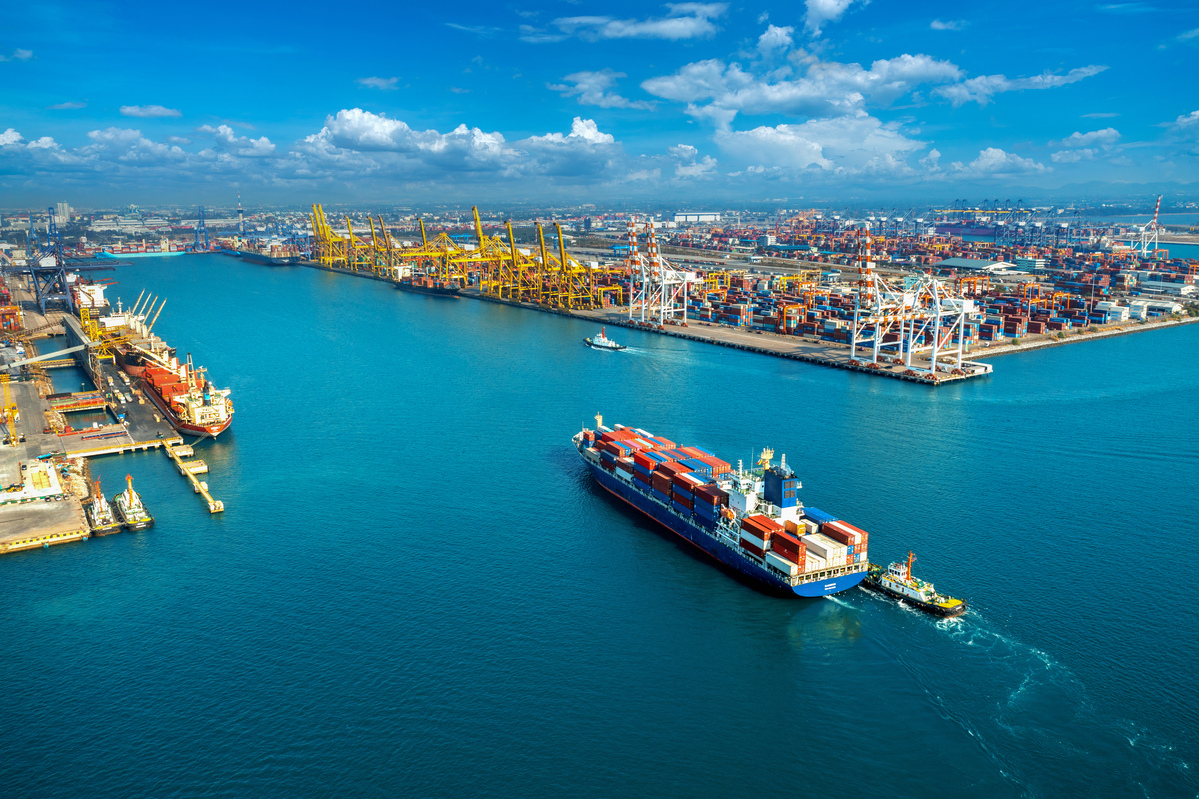
Possessing an FMC license offers numerous advantages:
- Legal Compliance: Ensures adherence to U.S. maritime laws, reducing the risk of penalties and legal issues.
- Market Access: Facilitates direct engagement with U.S. clients and partners, expanding business opportunities.
- Enhanced Credibility: Signals professionalism and reliability to customers and stakeholders.
- Operational Efficiency: Streamlines customs clearance and cargo handling processes.
- Competitive Edge: Enables companies to offer comprehensive logistics solutions, including issuing their bills of lading.
These benefits collectively contribute to a stronger market presence and customer trust.
Vietnam Post Logistics: Leveraging the FMC License
Vietnam Post Logistics has strategically acquired the FMC license to enhance its service offerings and expand its reach in the U.S. market. This move underscores Vietnam Post Logistics’s commitment to providing legally compliant and efficient logistics solutions for clients engaged in trans-Pacific trade.
Strategic Advantages:
- Direct Service Provision: With the FMC license, Vietnam Post Logistics can directly handle shipments to and from the U.S., eliminating the need for intermediaries.
- Customized Solutions: Vietnam Post Logistics provides tailored logistics services that cater to the specific needs of clients, ensuring flexibility and responsiveness.
- Integrated Network: Leveraging its extensive domestic and international network, Vietnam Post Logistics ensures seamless end-to-end logistics operations.
- Regulatory Expertise: Vietnam Post Logistics‘s in-depth understanding of FMC regulations ensures compliance and minimizes risks associated with international shipping.
By holding the FMC license, Vietnam Post Logistics positions itself as a reliable partner for businesses seeking to navigate the complexities of U.S. logistics.
Navigating the U.S. logistics landscape requires more than just operational capability; it demands regulatory compliance and strategic foresight. The FMC license serves as a critical credential for companies aiming to establish a strong foothold in the U.S. market.
Vietnam Post Logistics’ acquisition of this license exemplifies its dedication to excellence and its commitment to supporting clients in achieving seamless and compliant international shipping operations.





